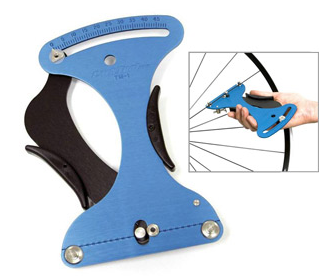I strongly suspect your spoke tension is quite uneven. If you installed the new spoke by just adding the new spoke, then that's even more likely.
A wheel with uneven tension will do exactly what you describe. There should be only two different spoke tensions in a rear wheel - the tight side and the loose side. Wheelbuilders will keep working a wheel until they get +/- 10% or so. Smaller range on a new wheel, wider on a cheap and/or old one (wheelbuilders rarely build cheap new wheels, those are made by machines). If you don't have a tensiometer (Park tool one, ~$60) you can possibly do it by the pitch of the spokes but I've had little luck with this - it's more affected by where the spokes cross each other than by spoke tension (ymmv, I have perfect pitch and am in other ways fussy, plus I have access to a tensiometer).
The problem with older wheels is often just getting the nipples to move on the spokes. That can take lube and time. Often more time than the cost of a new wheel. But if it's your time, that's "free". Again, use a grease-based chain lube (or for once, WD-40 or similar) on the spoke/nipple junction and also the rim/nipple area. Then work each spoke gently (less than half a turn) until the spoke moves on the nipple. Realistically, gently is an exaggeration - you don't have a lot to lose by breaking the spoke doing this, except that breakage normally happens on marginal wheels (cheap and broken), so you run the risk of breaking enough to make the wheel uneconomic to repair even if you're only paying for new spokes not labour.
I think your best bet now is to make sure as many nipples are free as possible, then take it to a bike shop. It'll cost $30-$100 to fix, but most shops will let you say "spend $X on it, then call me".
At some point the wheel is so warped and unreliable that you just need to buy a new one. I think you're 90% there right now. It depends on how much you're a gambler... you might spend $30 and get the wheel nicely trued and solve your problem. Or you might spend (say) $50, get the call and they say "it's definitely broken now" and you have to buy a new wheel.
If you're short on money another second hand wheel might work, and it'll definitely be cheaper than a new one. Check your local tip shop/ bicycle recycler for cheap ones.
edit: tensiometers are standard bike shop tools, the cheap Park ones work pretty well and are only about $US60 online. The more expensive ones don't work a huge amount better but cost a lot more ($US300+). I've compared a DT Swiss micrometer-based tool to a Park one and no-one in the shop could reliably measure more accurately with the DT one. It was harder to use and heavier so we went back to the cheap one.


